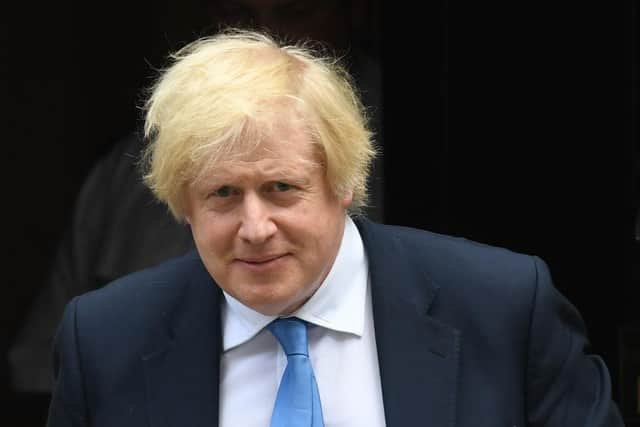Why is the DfID merging with the FCO? Boris Johnson’s new ‘super department’ explained - and why it’s being criticised
Prime Minister Boris Johnson has announced plans to merge the Department for International Development (DfID) with the Foreign Office (FCO), to create a new united department that will better promote British interests.
The new department, titled the Foreign Commonwealth and Development Office, will be established in early September and led by Foreign Secretary, Dominic Raab.
Why are the departments merging?


Advertisement
Hide AdAdvertisement
Hide AdMr Johnson has said the merger will allow the Foreign Secretary to make decisions on aid spending in line with the UK’s priorities overseas.
The move is intended to give the UK greater influence on the world stage as it starts to recover from the coronavirus pandemic and hold the G7 presidency.
The UK is the only G7 country to spend 0.7 per cent of gross national income (GNI) on overseas development and the government has said it remains committed to meeting this target, which is enshrined in law.
In a statement to MPs, Mr Johnson labelled the separation created between diplomacy and overseas development by Mr Blair’s administration as “artificial and outdated”, and argued that the new “super-department” would be of significant benefit to Britain’s overseas aid development.
Speaking in the Commons, the Prime Minister said: "We must now strengthen our position in an intensely competitive world by making sensible changes.
"And so I have decided to merge Dfid with the Foreign and Commonwealth Office to create a new department [...] the Foreign, Commonwealth and Development Office."
"The British taxpayer has a right to expect that we will achieve the maximum value for every pound that we spend.
"One cardinal lesson of the pandemic is that distinctions between diplomacy and overseas development are artificial and outdated."
What does the DfID do?
Advertisement
Hide AdAdvertisement
Hide AdThe DfID leads the UK’s work to end extreme poverty, tackling global challenges including disease, mass migration, insecurity and conflict.
The aim of the department is to build a safer, healthier and more prosperous world for people both in developing countries and in the UK.
The DfID works in many countries across the world, including Africa, Asia and the Middle East, and provides aid through multi-country global programmes.
What did MPs say about the merger?
Labour leader Sir Keir Starmer branded the announcement of the merger as a “pure distraction” from the government’s poor handling of the coronavirus outbreak, arguing there was “no rationale” for such a statement to be made at the current time.
A number of Mr Johnson’s predecessors also expressed criticism against the move, with Mr Blair labelling the decision as “wrong and regressive”.
He said: "I am utterly dismayed by the decision to abolish DfID.
"We created DfID in 1997 to play a strong, important role in projecting British soft power. It has done so to general global acclaim.
"The strategic aims of alignment with diplomacy and focus on new areas of strategic interest to Britain could be accomplished without its abolition."
Advertisement
Hide AdAdvertisement
Hide AdMr Brown also condemned the merger, writing on social media that he was saddened to see Mr Johnson “abolishing one of the UK’s great international assets.”
Fellow former Prime Minister David Cameran also labelled the merger as a “mistake” and said that reforms would result in the UK garnering “less respect” on the global stage.
Writing on Twitter, he said: “The Prime Minister is right to maintain the commitment to 0.7 - it saves lives, promotes a safer world and builds British influence. But the decision to merge the departments is a mistake.
“More could and should be done to coordinate aid and foreign policy, including through the National Security Council, but the end of @DFID_UK will mean less expertise, less voice for development at the top table and ultimately less respect for the UK overseas.”
However, Mr Johnson hit back at the criticism and told MPs he “profoundly” disagreed with Mr Cameron’s statement, saying it was “extraordinary we haven’t done it earlier”.
Mr Johnson maintained that the new department would provide a “far more coherent” way of assigning aid.
